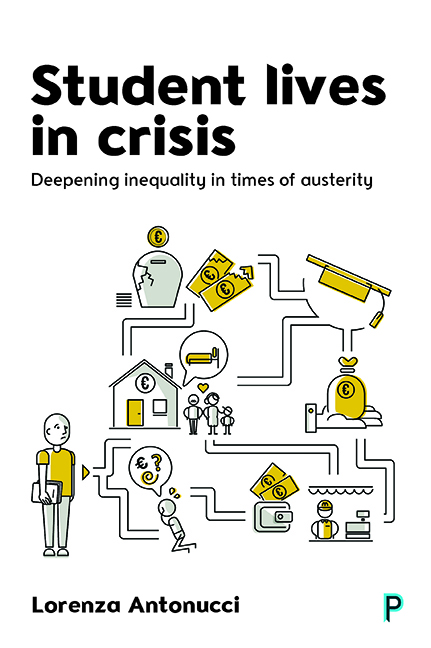Book contents
- Frontmatter
- Dedication
- Contents
- List of tables and figures
- List of acronyms
- Note on author
- Preface: A post-Brexit preface
- Acknowledgements
- Introduction: Young people’s lives at university in crisis
- Part 1 University for all? How higher education shapes inequality among young people
- Part 2 Exploring the inequality of university lives in England, Italy and Sweden
- Part 3 The ‘eternal transition’: young adults and semi-dependence in university
- Conclusion: Addressing growing inequality among young people in university
- Notes
- Annex
- Index
Preface: A post-Brexit preface
Published online by Cambridge University Press: 05 April 2022
- Frontmatter
- Dedication
- Contents
- List of tables and figures
- List of acronyms
- Note on author
- Preface: A post-Brexit preface
- Acknowledgements
- Introduction: Young people’s lives at university in crisis
- Part 1 University for all? How higher education shapes inequality among young people
- Part 2 Exploring the inequality of university lives in England, Italy and Sweden
- Part 3 The ‘eternal transition’: young adults and semi-dependence in university
- Conclusion: Addressing growing inequality among young people in university
- Notes
- Annex
- Index
Summary
The Acknowledgements for this book were written before the results of the UK EU referendum and, almost prophetically, referred in its end to the ‘analytical insularism’ felt during the referendum debate – the feeling of isolation felt by European researchers who tried to contribute to a debate that revolved almost entirely around the British perspective and the British interest. European perspectives, as those put forward by this book, are now more important than ever.
This book reflects my own experience as a European researcher based in the north of England, but with a permanent affiliation with Brussels and an interest in EU affairs. This peculiar position allowed me to link the British trend of growing inequality with the evolution of EU policies. After all, this book is the product of the (maybe overidealistic) ambition I’ve been pursuing since my early 20s: linking the British social policy tradition with European affairs.
The reader will find that this book is, inevitably, both unapologetically European and strongly EU-critical. Mass expanded higher education (HE) was supposed to sustain the European dream of enhancing social justice – the same one that recent EU austerity reforms have betrayed. Public sociologists have interpreted the Brexit vote as a manifestation of the malaise of the British working class, with an assumption that the conditions of the British working classes are somehow exceptional compared to that of the rest of Europe.
My study compared the experiences of young working-class students across Europe and found (see Parts 2 and 3) striking similarities between the experiences of young people from lower socio-economic backgrounds from Middlesbrough (in the north of England, at the core of the Brexit vote, and victim of UK self-imposed austerity reforms) and those from Naples (the south of Italy, and one of the places that has been mostly affected by EU austerity). Disadvantaged young people from these two places share a surprisingly similar story, namely, a materially disadvantaged experience of HE, with young people lacking basic needs (such as having to skip meals in order to buy books), insufficiency of state support, a feeling of local isolation (with lack of transport), over-reliance on families that do not have enough resources, and the subsequent cycle of debt (with banks or local communities) that this over-reliance generates. Issues of mental wellbeing are also widespread among young people living in these two geographically afar (but policy-alike) regions.
- Type
- Chapter
- Information
- Student Lives in CrisisDeepening Inequality in Times of Austerity, pp. ix - xPublisher: Bristol University PressPrint publication year: 2016



